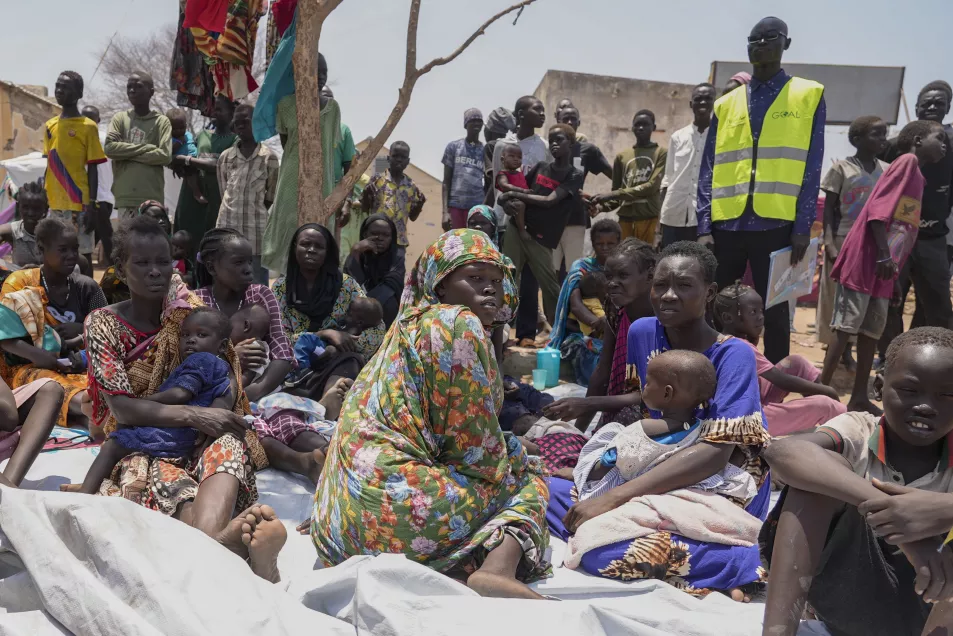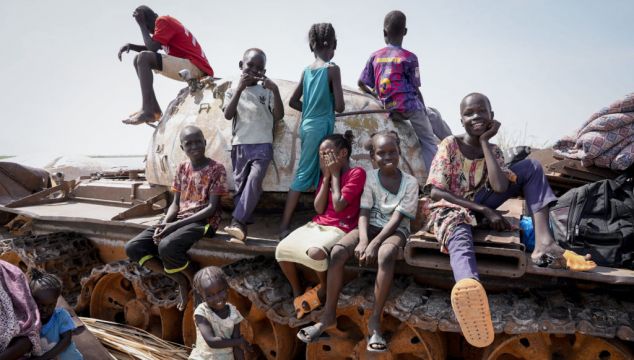Tens of thousands of exhausted people are heading home to the world’s youngest country as they flee a brutal conflict in neighbouring Sudan.
A bottleneck of men, women and children are camping near the border of Sudan and South Sudan, and the international community and the government are worried about a prolonged conflict.
Fighting between Sudan’s military and a rival militia killed at least 863 civilians in Sudan before a seven-day ceasefire began on Monday night.
Years of fighting between government and opposition forces in South Sudan killed almost 400,000 people and displaced millions until a peace agreement was signed nearly five years ago.
Large-scale clashes between the main parties have subsided, but there is still fighting in parts of the country.
South Sudan has billions in oil reserves that it moves to international markets through a pipeline that runs through Sudan in territories controlled by the warring parties.

If that pipeline is damaged, South Sudan’s economy could collapse within months, said Ferenc David Marko, a researcher at the International Crisis Group.
However, the most immediate concern is the tens of thousands of South Sudanese who are returning with no idea of how they will get home to their towns and villages.
Many are unable to afford the trip, with aid groups and the government stretched for resources they can use to help.
Some 50,000 people have crossed into the border town of Renk, many sheltering in stick huts along the road and in government buildings throughout the city.
Some wander aimlessly in the market, desperately asking foreigners how to get home. People are arriving faster than they can be taken to new locations.
The longer they stay, the greater the risk of fighting between communities, many with long-standing grievances stemming from the civil war. Many are frustrated because they do not know what lies ahead.
At first, the local government wanted to divide the South Sudanese returning through Renk, based on their place of origin.
Aid groups, however, pushed back. Together with the government and community leaders, the aid groups are engaging in peace dialogues.
“We are worried (about more violence),” said Yohannes William, the chairman for the humanitarian arm of the government in Upper Nile state.
“The services that (are) being provided here, they are limited. We have been told that this is a transit centre, anyone who comes should be there two days or three days and then transit.
“But now, unfortunately, due to the delayment of transportation, they have been there for more than two weeks, three weeks.”







